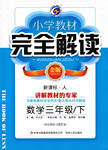题目内容
120. Nothing on can separate Taiwan from our motherland.
|
A.earth |
B.world |
C.land |
D.Globe |
A
【解析】略

 步步高口算题卡系列答案
步步高口算题卡系列答案 点睛新教材全能解读系列答案
点睛新教材全能解读系列答案 小学教材完全解读系列答案
小学教材完全解读系列答案The other day, I happened to meet someone I hadn’t seen for many years. I couldn’t believe the change in him. In fact, he didn’t even seem like the 36 person.
When I first knew Bill , back in 37 , he was one of the most carefree(无忧无虑)people I had ever 38 . He was always ready to have a party. He thought 39 of going out for beer at three o’clock in the morning or driving 15 miles to see an old 40 he really liked. Bill and I were in the same class in college, and 41 was never dull when he was 42 . With him there was one wild 43 after another. Sometimes I wonder how we 44 to study for our exams.
Last week I was in Houston on business and I ran into Bill in the bar at the hotel. 45 , I wasn’t even sure it was 46 . Was this short-haired businessman really the same person? I wasn’t really sure until I came near him but it indeed was Bill. Now he works for a bank. He 47 most of the evening about his job, his new car and his house. How he had changed! Back when we were in college, the 48 thing Bill cared about were possessions(财富). Now they seemed to be his main 49 . Although I have changed quite a bit myself, somehow I never 50 Bill changing so much. My image of him 51 the one I had formed 52 the time when we were college students together.
I suppose it’s 53 to expect people to remain the same, especially 54 I have changed so much myself. But I must say that I enjoyed the old Bill much more than the new Bill. Maybe he 55 the same way about me.
| 【小题1】 |
|
| 【小题2】 |
|
| 【小题3】 |
|
| 【小题4】 |
|
| 【小题5】 |
|
| 【小题6】 |
|
| 【小题7】 |
|
| 【小题8】 |
|
| 【小题9】 |
|
| 【小题10】 |
|
| 【小题11】 |
|
| 【小题12】 |
|
| 【小题13】 |
|
| 【小题14】 |
|
| 【小题15】 |
|
| 【小题16】 |
|
| 【小题17】 |
|
| 【小题18】 |
|
| 【小题19】 |
|
| 【小题20】 |
|
My husband used to be a workaholic(工作狂).Nothing seemed to be more __16__ to him than his work,not even his family.
He usually __17__at 6 o’clock,and our __18__ and I were still asleep then,and then left __19__ having breakfast.I asked him to have breakfast __20__,but he said it’s a waste of __21__.I didn’t know what kept him so__22__.He even couldn’t finish all his work in the office.He came back at ten at night.However,I never expected that he would give me a kiss.__23__he got home,he would start to__24__.The kids had already been in bed,of course.
“Mom,where is Dad?Why I __25__ see him?”the kids often asked.
“Well,Dad has to work.He is busy,”I always__26__like this.As time went by,they didn’t ask where their dad was again.Perhaps they had__27__that they had a dad.However,the situation changed several months ago.
Jenny,our daughter,suddenly became__28__.I sent her to the hospital.The__29__told me that she was seriously ill and that she was calling__30__all the time.Tears burst into my eyes when I__31__that.I finally called my __32__and told him about that.Half an hour later,he came to the hospital and held Jenny’s little hands.
He__33__another job two weeks later.
“I just wanted to make as much__34__as possible for you and our kids.But now,I just want to__35__as much time as possible with you and the kids,”he said and that’s what he is doing now.
|
1. |
|
|
2. |
|
|
3. |
|
|
4. |
|
|
5. |
|
|
6. |
|
|
7. |
|
|
8. |
|
|
9. |
|
|
10. |
|
|
11. |
|
|
12. |
|
|
13. |
|
|
14. |
|
|
15. |
|
|
16. |
|
|
17. |
|
|
18. |
|
|
19. |
|
|
20. |
|
